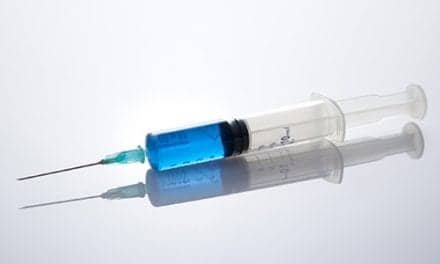Marking the fifth anniversary since Hurricane Katrina, the Merck Childhood Asthma Network Inc (MCAN) has pledged nearly $2 million to Xavier University of Louisiana’s Center for Minority Health and Health Disparities Research and Education to sustain Head-off Environmental Asthma in Louisiana (HEAL), a program that works with families in the region to manage their children’s asthma.
Following Katrina, mold spread throughout the area, destroying homes and making children with asthma sick. Researchers have found that children in New Orleans post-Katrina show increased sensitivities to environmental asthma triggers and are at risk for more severe asthma symptoms and attacks.
In 2007, MCAN originally partnered with the National Institute for Environmental Health Sciences (NIEHS) and the National Center on Minority Health and Health Disparities (NCMHD) under the auspices of the Foundation for the National Institutes of Health to launch the first phase of HEAL post-Katrina. HEAL was one of the largest public-private partnerships established to address and support an asthma initiative in New Orleans.
In phase I, HEAL’s research found that nearly 80% of children with asthma in post-Katrina New Orleans were sensitive to mold, a figure nearly 30% higher than for children involved in a study in seven other US cities. Asthma prevalence rates in New Orleans are 3 times higher than the national rate and among the highest in the nation. In addition, New Orleans has the highest childhood asthma death rate in Louisiana.
“There is an undeniable connection between the environment and health of children with asthma,” says Floyd Malveaux, MD, executive director of MCAN and former dean of the College of Medicine at Howard University. “Effective asthma management must go beyond traditional medical care and include additional interventions to manage the problem, as well as to reduce exposure to the specific environmental triggers known to exacerbate a child’s asthma.”
The HEAL program partnered 184 children, 4 to 12 years old, with moderate to severe asthma and their families with a team of health education specialists and community health workers who provided education and counseling to caregivers on how to manage their child’s asthma in a transformed environment. HEAL interventionists used tailored care management and home visitation to reduce risk factors and triggers in the home. The children in the program showed a 50% reduction in days with symptoms.
“For many children with asthma, the storm blew away the ability to access even the most basic health care services and any ability to monitor and track their health,” said Malveaux. “We structured HEAL to provide families with a tailored approach that provided a stronger and more coordinated system for managing asthma than they had before the storm; a system that showed positive results for the children.”
Phase II of the HEAL program will be led by the Center for Minority Health and Health Disparities Research and Education (CMHDRE) at Xavier. The Center specializes in eliminating disparities for minority and other medically underserved populations.
Source: Merck Childhood Asthma Network








